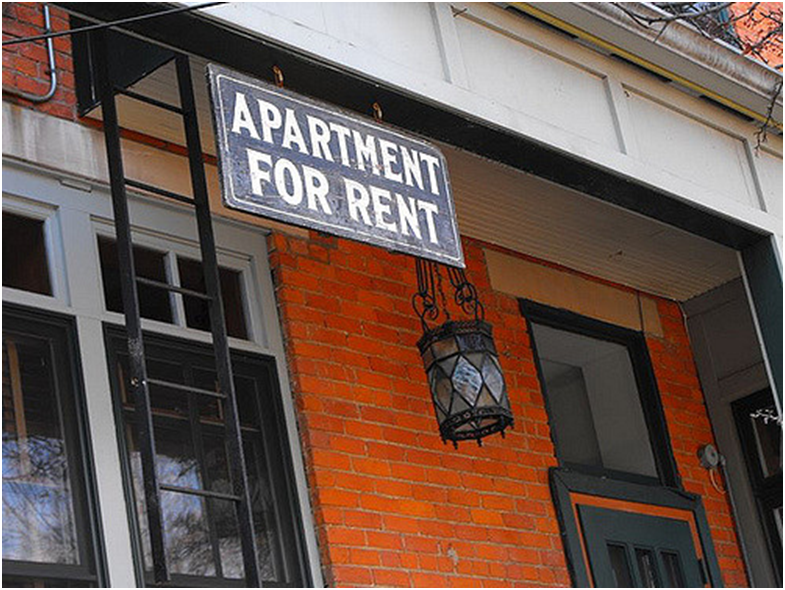Think You Have What It Takes to Be a Landlord?

As everybody knows, the housing market is still hot, and rental properties have made many investors some decent money. According to a study published on the Chicago Tribune site, the U.S. is seeing the most renters in history since 1965.
Due to this rapidly rising rate, now is a great time to invest in the rental property market. Being a landlord isn’t for everyone, though. The job isn’t always difficult, but there are some traits and skills that you’ll have to acquire to ensure a great landlord experience.
Choose a Great Property
The first, and perhaps most vital, step in becoming a solid landlord is to choose a property that has high rental power and profit potential. Start by defining your primary goal.
“Is it good cash flow that you’re looking for, or do you just want something that’s low maintenance?” Ed Laine, Seattle broker of Miller Laine Properties, recommends you ask yourself.
He also says a key criterion is a property that’s close to home and in a rentable location. “If the wind blew a tree limb through my tenant’s window at 2 a.m., how far would I be willing to drive to deal with it?”
Screen Tenants Well
A great property with excellent investment potential can turn into a money pit if it doesn’t get great tenants. Bad ones can fail to pay the rent, trash the property, and leave without notice.
A great tenant screening system will help you take control of the situation and minimize renter damage. Patrick Chapman of Chapman Properties in Boise says that he often sees landlords suffer bad tenants because of poor tenant screenings.
“It’s mostly people who have a house in Boise, they live in California, and they don’t have the means to do the background checks,” he said in an interview with Bankrate. “They just throw tenants in there and it turns out to be a nightmare. Those are the ones who run, not walk, to us.”
A property management company can substantially reduce your hassles and fill your properties with better tenants.
Be Ready for Late Nights and Abnormal Hours
If you live near your properties, it’s easier to screen tenants and handle maintenance calls. However, this benefit can also be a disadvantage.
You’ll get phone calls at midnight about forgotten keys, and emergency calls at 5 in the morning to handle an overflowing toilet. When she helps property investors find their first rental property, Jill Wente of Gary Greene Real Estate told Bankrate, this is a facet about which she warns all potential landlords before they buy.
“I ask them if they’d mind getting a call on a Saturday morning with a toilet emergency,” she says. “Or at 11 o’clock at night because the air conditioning isn’t working. Or when they’re out of town. Even if they say ‘no,’ I still recommend a management company. I’ve had clients try to do without, and it just becomes too much.”
Focus on Positive Cash Flow
Responding to late-night phone calls and fulfilling your various other landlord duties is just a small part of achieving success. You also have to focus on ensuring you generate a meaningful profit. Otherwise, the investment obviously wasn’t worthwhile.
According to Kiplinger’s senior editor Jeffrey R. Kosnett, a rental property should bring in a positive cash flow of at least $300 a month to be a worthwhile investment. “There are many formulas to calculate this,” Kosnett writes.
“If rent minus all expenses, including a management fee and a reserve fund for vacancies, leaves more than $300, the transaction is a go. Tax deductions for depreciation don’t figure here. They become icing on the cake after calculating overall earnings.”
Use this as a basic guide to help you settle on a positive cash flow for your property. Although being a landlord should be something you enjoy doing, having your eye on the financial prize ought to be a hugely motivating factor in your success as well.
Recruit a Team to Help
Landlords shouldn’t try to do everything themselves. Team members and other professional entities can support and simplify your landlord responsibilities.
“At a minimum, you’ll want to connect with a good Realtor who can help you market the property, a reliable handyman or contractor that can make repairs as necessary, and a lawyer who can look over your lease,” recommends Beth Braverman of Forbes. “If you’re buying a property that’s more than an hour’s drive from your home, consider working with a management company that can handle the place’s day-to-day needs.”
Not everyone is cut out for becoming a landlord. It’s not easy to be patient and compassionate when you’re screening potential tenants and dealing with renters’ problems.
However, if you put together a great team of property managers and other contractors to help you out, your everyday stress will diminish significantly. You’ll be grateful for a few dependable and trustworthy people to handle emergencies and promote your rentals.

